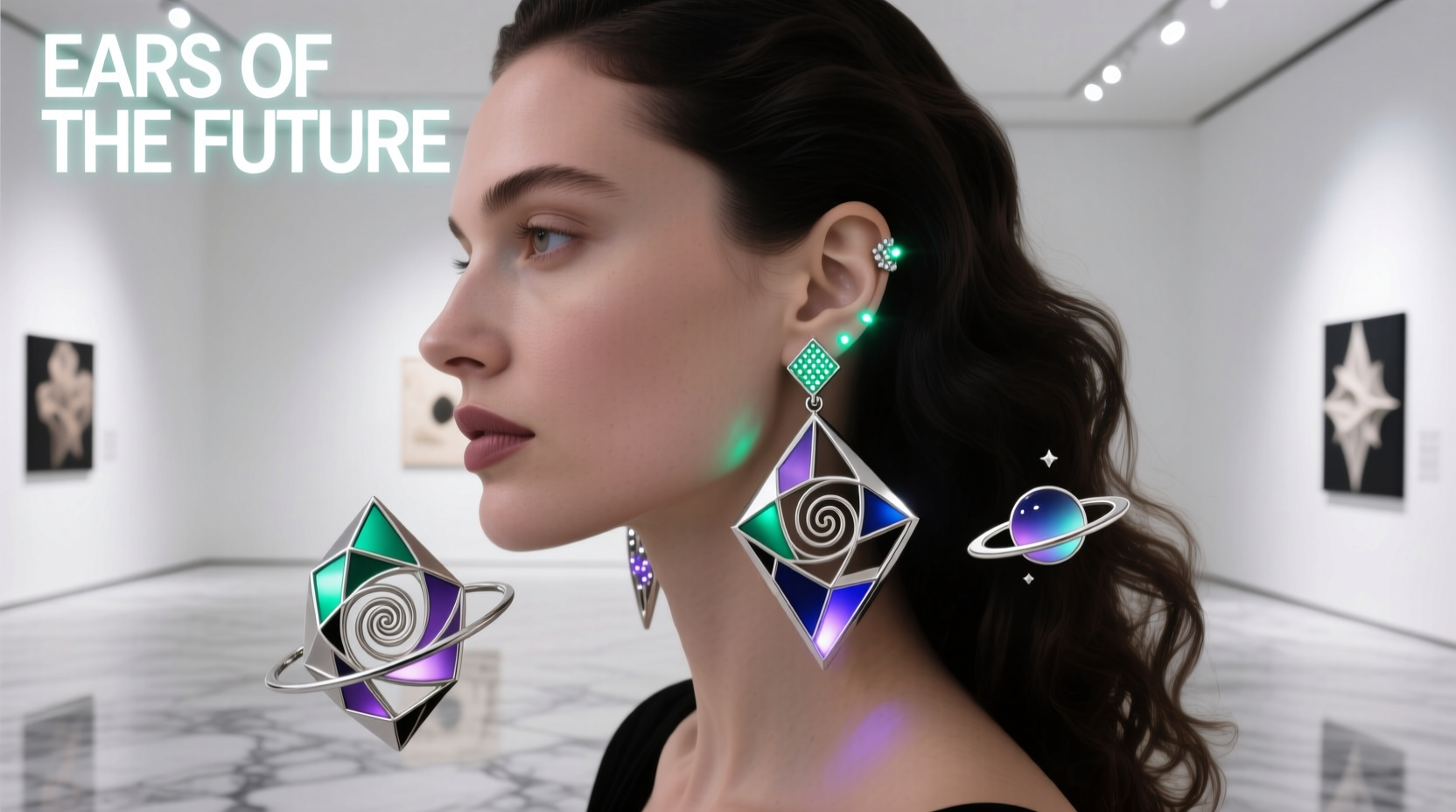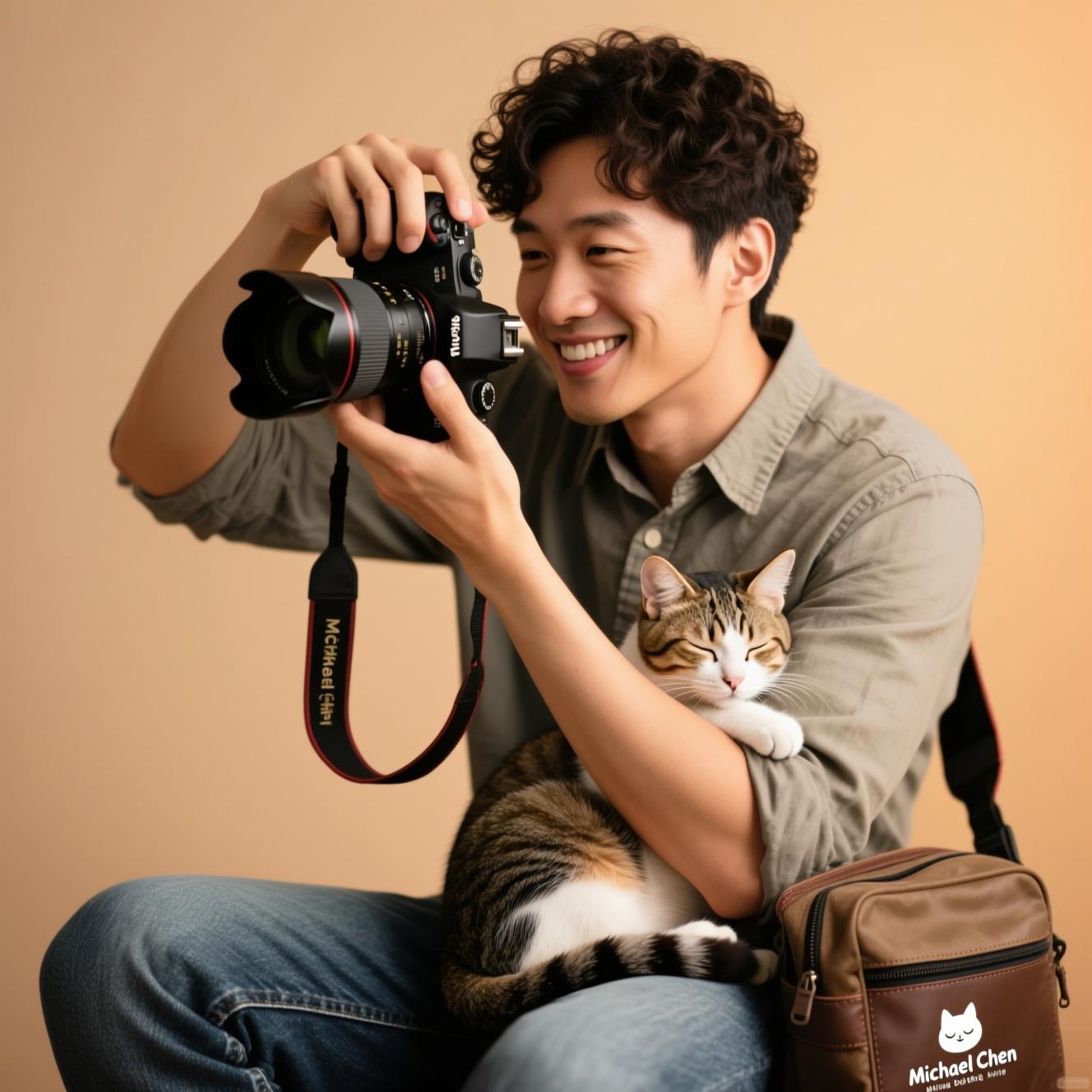In an era where personal expression is paramount, ear sense jewelry—curated collections of earrings, ear cuffs, helix studs, and lobe climbers—has emerged as a powerful medium of individuality. No longer limited to simple studs or hoops, today’s ear curation blends artistry, craftsmanship, and fashion-forward vision. For those seeking a truly distinctive aesthetic, the pursuit of unique, high-end pieces goes beyond trend-chasing. It’s about curating a narrative through design, material, and intention. Whether you're building a signature look or refining an existing collection, discovering standout ear sense jewelry requires insight, patience, and a discerning eye.
Understanding the Rise of Ear Sense Jewelry

The concept of “ear sense” refers to the intentional styling of multiple ear piercings with coordinated or contrasting jewelry to create a cohesive yet dynamic visual statement. What began as a subcultural trend has evolved into a mainstream fashion movement embraced by designers, celebrities, and style icons alike. Unlike traditional single-pair earring choices, ear sense allows for layered storytelling—each piece contributing to an overall composition that reflects personality, mood, or occasion.
High-end ear sense jewelry distinguishes itself through superior materials (such as 18k gold, ethically sourced diamonds, or rare gemstones), artisanal craftsmanship, and limited-edition designs. These pieces are often hand-fabricated, making them not only luxurious but also collectible. The growing demand for exclusivity has led to a surge in independent designers and micro-boutiques specializing in bespoke earwear, offering alternatives to mass-produced accessories.
“Ear curation is the new canvas for self-expression. It’s intimate, sculptural, and deeply personal.” — Lila Moreau, Contemporary Jewelry Curator at Atelier Éclat
Where to Find Exceptional Ear Sense Jewelry
Locating high-quality, one-of-a-kind ear jewelry begins with knowing where to look. Mainstream retailers rarely carry the depth or originality required for a truly distinctive collection. Instead, focus on niche sources that prioritize design integrity and craftsmanship.
- Independent Designers: Platforms like Etsy, Not Just A Label, and SHOWstudio showcase emerging talents who specialize in avant-garde earwear. Look for artists with strong portfolios and attention to detail.
- Boutique Galleries: Artisan jewelry galleries in cities like New York, London, and Tokyo often represent designers whose work blurs the line between wearable art and adornment.
- Trunk Shows & Pop-Ups: Attend curated events hosted by luxury department stores or independent showrooms. These settings allow direct interaction with designers and access to exclusive releases.
- Sustainable Brands: Ethical luxury labels such as Ana Luisa, WWAKE, and Sorelli emphasize traceable sourcing and small-batch production, ensuring both quality and responsibility.
Key Criteria for Evaluating High-End Ear Jewelry
Not all jewelry marketed as “luxury” meets the standards of true high-end craftsmanship. To ensure authenticity and value, consider the following criteria when evaluating a piece:
| Criterium | What to Look For | Red Flags |
|---|---|---|
| Material Quality | Real gold (14k+), platinum, conflict-free diamonds, natural gemstones | Vague descriptions like “gold-plated” without thickness specs, synthetic stones labeled as “gem-quality” |
| Craftsmanship | Hand-set stones, seamless joins, smooth finishes, precise detailing | Visible glue residue, uneven prongs, rough edges |
| Design Originality | Limited editions, conceptual themes, architectural forms | Mass-replicated designs seen across multiple sellers |
| Ethical Sourcing | Transparent supply chain, recycled metals, certified gemstones | No information provided on origin or labor practices |
Mini Case Study: Building a Signature Ear Stack
Sophia, a creative director based in Los Angeles, wanted to develop a refined ear stack that reflected her minimalist yet bold aesthetic. She began by mapping out her five piercings per ear, identifying focal points (like the helix and tragus) for statement pieces and secondary zones for delicate connectors. After researching over 20 designers, she commissioned a custom set from a Brooklyn-based jeweler known for geometric gold forms. The final result included asymmetric diamond-studded cuffs paired with matte-finish titanium studs—pieces that garnered consistent compliments and even inspired a feature in a digital fashion journal. Her approach combined research, customization, and strategic layering, proving that a distinctive style emerges from thoughtful selection, not impulse buying.
Step-by-Step Guide to Curating Your Collection
Building a high-end ear sense collection doesn’t happen overnight. It’s a deliberate process that balances aesthetics, comfort, and investment value. Follow this timeline to refine your approach:
- Assess Your Piercings (Week 1): Map each piercing location and note which can support heavier pieces versus those requiring lightweight designs.
- Define Your Aesthetic (Week 2): Gather inspiration from Pinterest, fashion editorials, or museum exhibits. Identify recurring themes—organic shapes, industrial lines, vintage motifs.
- Research Designers (Weeks 3–4): Compile a shortlist of 5–7 artisans whose work aligns with your vision. Review client testimonials and craftsmanship details.
- Acquire Foundation Pieces (Month 2): Begin with two anchor items—a statement cuff and a pair of elegant studs—in precious metal. These will serve as the base for future additions.
- Layer Strategically (Ongoing): Add complementary pieces gradually, ensuring balance in size, texture, and shine. Avoid overcrowding; negative space enhances impact.
- Maintain & Rotate (Monthly): Clean jewelry regularly and rotate styles seasonally to preserve longevity and keep your look fresh.
Expert Tips for Long-Term Wear and Care
Premium ear jewelry demands proper maintenance to retain its brilliance and structural integrity. Consider these best practices:
- Remove jewelry before swimming, sleeping, or exercising to prevent damage or loss.
- Use a soft-bristled brush and mild soap solution to clean crevices, especially in pave-set pieces.
- Store items separately in lined compartments to avoid scratches from harder metals or stones.
- Have clasps and posts professionally inspected annually for wear.
Frequently Asked Questions
Can I mix gold tones in my ear stack?
Yes—modern styling embraces mixing yellow, white, and rose gold. The key is balance. Distribute tones evenly across both ears or cluster similar hues together for intentional contrast.
How do I know if a piece is truly handmade?
Authentic handmade jewelry often features slight variations between pieces, visible tool marks, and detailed descriptions of fabrication methods (e.g., “hand-carved wax mold,” “forged in-house”). Mass-produced items tend to be uniform and lack production transparency.
Is high-end ear jewelry worth the investment?
For individuals who value craftsmanship, sustainability, and timeless design, yes. Well-made pieces retain value, can be passed down, and offer greater versatility than fast-fashion alternatives.
Final Thoughts: Crafting a Style That Speaks for Itself
Discovering unique, high-end ear sense jewelry is more than a shopping task—it’s an act of curation, akin to assembling a personal art collection. Each piece should resonate with your identity, enhance your features, and withstand the test of time. By focusing on quality over quantity, supporting skilled artisans, and approaching your ear stack with intention, you cultivate a look that isn’t just fashionable, but unforgettable.









 浙公网安备
33010002000092号
浙公网安备
33010002000092号 浙B2-20120091-4
浙B2-20120091-4
Comments
No comments yet. Why don't you start the discussion?